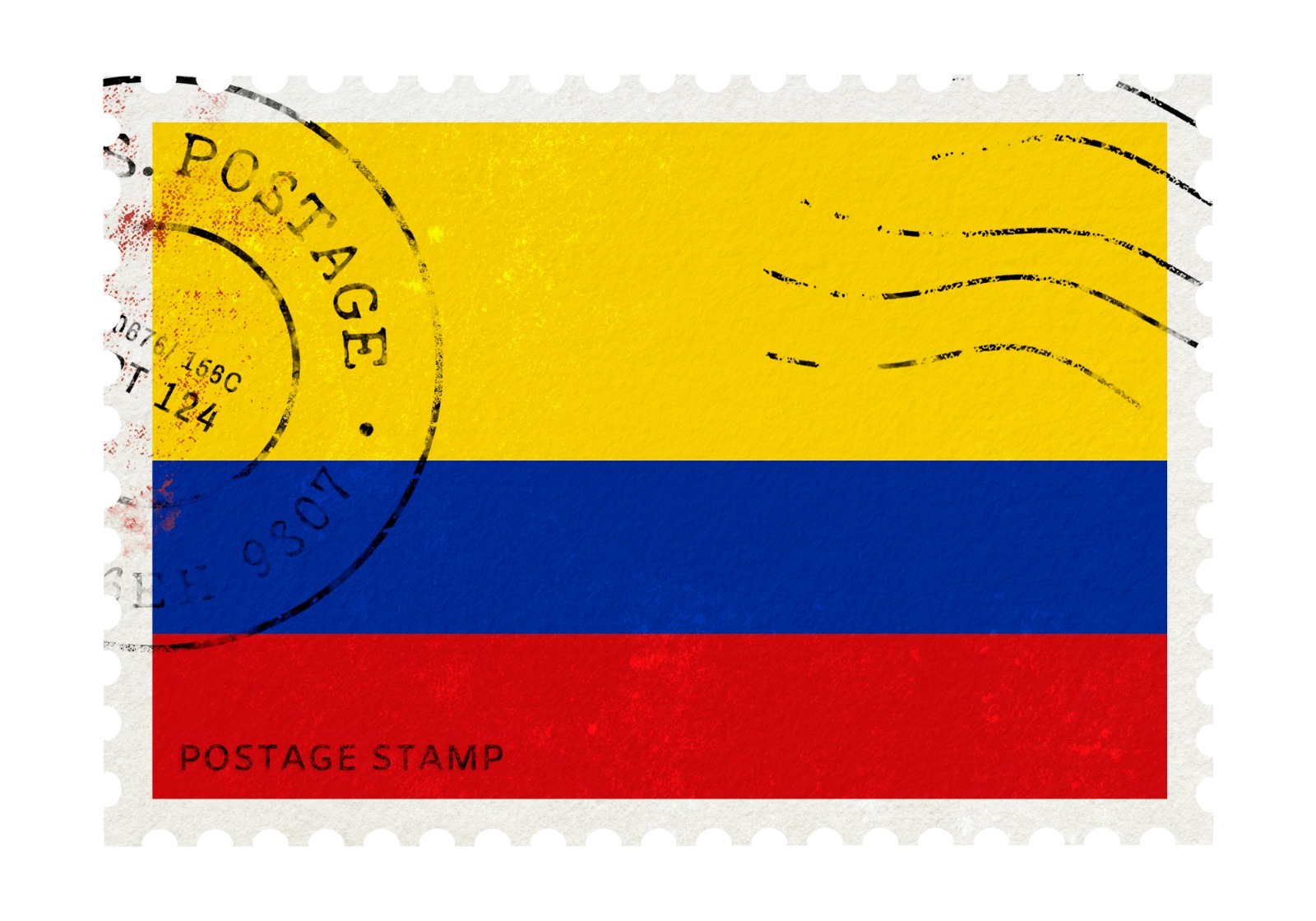September 1, 2025
Colombia: A beatiful trap?Colombia Digital Nomad Visa: Work and Travel Easily
.jpeg)
Key Highlights
Here are the key takeaways about Colombia's visa for digital nomads:
- The Colombian government launched the "Visa V Nómadas Digitales," allowing you to stay for up to two years.
- The application process is entirely online, with a low income requirement of just $684 per month.
- Colombia offers a very low cost of living, making your income stretch further while you enjoy a high quality of life.
- Major cities like Medellín, Bogotá, and Cartagena are popular hubs for remote work professionals.
- You must prove you have comprehensive health insurance that covers you for your entire stay in the country.
- The digital nomad visa allows you to work for foreign companies but not for a Colombian company.
Introduction
Colombia has quickly become a top destination for professionals embracing remote work. With its vibrant culture, stunning biodiversity, and affordable lifestyle, it offers an unparalleled experience. Recognizing this trend, the Colombian government introduced the digital nomad visa in 2023. This new visa makes it easier than ever for you to live and work in this beautiful South American country, transforming your work-from-home routine into a grand adventure. Are you ready to explore what Colombia has to offer?
Understanding the Colombia Digital Nomad Visa

The Colombian government has created a new visa specifically for you, the modern remote worker. Known as the Visa V for Digital Nomads, this permit is designed to welcome individuals who work for foreign companies. It simplifies the process of legally residing in the country while you perform your job online.
To get started, you will need a valid passport and proof of your remote work arrangement. The application process is streamlined and conducted online, making it accessible from anywhere in the world. Next, we will explore the specifics of this visa and who is eligible to apply.
What is the Colombia Digital Nomad Visa?
The Colombia digital nomad visa, officially called the "Visa V Nómadas Digitales," is a permit created by the Colombian government to attract international remote workers. It grants you the right to live in the country for up to two years. It's important to note that this visa cannot be extended, so you should plan your stay accordingly.
This visa is tailored for remote workers who are either self-employed with international clients or employed by a company outside of Colombia. The application process is designed to be straightforward and is completed entirely online. One of the key benefits is that it grants you a state identification card called the 'Cédula de Extranjería,' which is essential for daily life activities like opening a bank account or signing a phone contract.
As Carmen Caballero, President of ProColombia, states, This visa is your gateway to experiencing this unique opportunity.
"Colombia is thrilled to share with digital nomads the privilege of working from the second most biodiverse country in the world.”
.jpeg)
Who is eligible for the visa?
The eligibility criteria set by the Colombian government are quite accessible for many remote workers. The primary rule is that you cannot work for or receive a salary from a Colombian company. Your income must come from foreign sources.
You also need a valid passport from a country that is exempt from requiring a short-stay visa to enter Colombia. This list is extensive and includes nations like the United States, Canada, Australia, and most of Europe. Do you meet this basic requirement?
Finally, you must meet a minimum income requirement and provide proof of employment.
The requirements include:
- Nationality: Hold a passport from a visa-exempt country.
- Income Requirement: Earn a minimum of $684 USD per month.
- Employment: Provide a letter from your foreign employer or a motivational letter if you are an entrepreneur.
- Dependents: You can include your spouse and children in the same application
Why Choose Colombia as a Digital Nomad?
Why is Colombia becoming such a magnet for digital nomads?
The country offers a unique blend of affordability, natural beauty, and a welcoming atmosphere. The low cost of living means your money goes further, allowing for a comfortable lifestyle without the financial pressures of more expensive destinations.
From the Andes mountains to the Caribbean coast, the diverse landscapes provide endless opportunities for adventure. The vibrant Colombian culture, friendly locals, and established remote work infrastructure in major cities make it an ideal setting for your next chapter. Let's examine the specific advantages and potential challenges of this lifestyle.
Advantages of living and working in Colombia
Choosing Colombia for your remote work base comes with a host of benefits that make it one of the most attractive destinations in South America. The country’s low cost of living is a major draw, allowing you to enjoy a high quality of life, dine out, and travel within the country without breaking the bank.
The pleasant climate is another significant advantage. Medellín, for instance, is famously known as the "City of Eternal Spring" for its year-round mild weather. This comfortable environment makes it easy to stay productive and enjoy outdoor activities whenever you wish.
Beyond the practicalities, the rich Colombian culture offers a unique experience.
Some of the key advantages include:
- Affordability: A significantly lower cost of living compared to North America and Europe.
- Climate: Fantastic year-round weather in many regions.
- Culture: A vibrant and welcoming culture with deep roots in music, dance, and coffee.
- Nature: Easy access to diverse landscapes, from mountains to beaches.
Pros and cons of the digital nomad lifestyle in Colombia

While the digital nomad lifestyle in Colombia is appealing, it’s wise to consider both the positives and negatives. The new digital nomad visa is a clear advantage, providing a legal two-year stay and access to local services. However, you must be prepared for some challenges.
One consideration is safety. While Colombia has become much safer, petty crime like pickpocketing can occur in busy areas. It is important to stay vigilant and take common-sense precautions. Another factor is the tax rate; if you stay for more than 183 days in a calendar year, you become a tax resident and may be taxed on your worldwide income.
Here is a balanced look at the pros and cons:
- Pro: The digital nomad visa simplifies long-term stays.
- Pro: Extremely low cost of living enhances your financial freedom.
- Con: You must have your own health insurance with comprehensive coverage.
- Con: Safety requires awareness, especially in larger cities.
Popular Colombian Cities for Digital Nomads
.jpeg)
Colombia’s diverse geography and culture mean you can choose a city that perfectly matches your lifestyle. The three major cities that attract the most digital nomads are Medellín, Bogotá, and Cartagena. Each offers a distinct atmosphere, from the temperate mountains to the tropical coast.
Whether you seek a modern urban hub, a cultural capital, or a relaxed beach town, you will find a place to call home. Emerging hotspots like Santa Marta are also gaining popularity, offering even more options for your remote work base. Let’s look at what makes each of these cities a great choice.
Medellín: The digital nomad hotspot

Medellín is arguably the biggest digital nomad hotspot in all of South America. Known as the "City of Eternal Spring" for its perfect year-round weather, it offers an unbeatable quality of life. The city has shed its past and is now a hub of innovation, culture, and entrepreneurship.
The neighborhood of El Poblado is the epicenter of the nomad scene, filled with trendy cafes, restaurants, and a bustling nightlife. You'll find a large and active community of remote workers here, making it easy to network and make new friends. Events like "Gringo Tuesday" are famous for connecting travelers and locals.
Medellín also boasts a robust infrastructure for remote work. There is an abundance of coworking space options, such as the popular Selina, where you can buy day or weekly passes. With reliable internet and a supportive community, it’s easy to see why Medellín is such a draw.
Bogotá: Culture, business, and connectivity
As Colombia's capital city, Bogotá is a sprawling metropolis that serves as the country's economic and cultural heart. With a population of over 11 million, it’s a place of high energy and endless activity. For digital nomads who thrive in a bustling urban environment, Bogotá is an excellent choice.
The city is a major business hub, offering great connectivity and a more formal work culture than other parts of the country. You'll find a wide range of multinational companies and a professional atmosphere. Its cultural scene is second to none, with world-class museums, theaters, and a renowned culinary landscape. Some travelers even claim it has the best nightlife in Latin America.
Despite its size, Bogotá has numerous coworking space options and cafes with fast Wi-Fi, making it easy to stay productive. While it can be more intense than Medellín, it offers a rich, cosmopolitan experience with stunning mountain views as a backdrop.
Cartagena and other emerging cities
.jpeg)
If you dream of working near the sea, the cities along the Caribbean coast are for you. Cartagena is a top destination, famous for its colorful colonial old town, beautiful beaches, and vibrant salsa scene. The warm, tropical climate is perfect for those who love the sun, though you should be prepared for higher humidity.
Beyond Cartagena, other emerging cities are attracting remote workers. Santa Marta offers a more relaxed vibe and is a gateway to incredible natural attractions like Tayrona National Park. Barranquilla, another bustling port city, is known for hosting one of the world's largest Carnival celebrations.
In all these coastal locations, you will find a growing number of coffee shops and accommodations catering to digital nomads. These cities provide a fantastic alternative to the mountain regions, allowing you to immerse yourself in the unique culture of Colombia's Caribbean coast.
Cost of Living in Colombia for Digital Nomads
One of the most significant advantages of living in Colombia is the very low cost of living. Your earnings in dollars or euros will go a long way when converted to Colombian Pesos (COP), allowing for a comfortable lifestyle. For remote workers, this financial freedom is a major incentive.
Costs can vary between major cities, with coastal areas like Cartagena sometimes being more expensive than mountain cities like Medellín. However, across the board, expenses for housing, food, and transport are a fraction of what you would pay in the United States or Europe. Let’s break down the numbers.
Monthly expenses overview
To give you a clear picture of the monthly expenses, it's helpful to see a breakdown of average costs. Keep in mind that these are estimates and can vary based on your lifestyle and the city you choose. Generally, you can live very comfortably on a modest budget.
Accommodation will be your biggest expense, but it is still remarkably affordable. Food costs are low, especially if you shop at local markets. Other expenses like utilities, transportation, and health insurance are also significantly cheaper than in many Western countries.
Housing, food, and daily essentials
Finding affordable accommodation in Colombia is straightforward. The rental market offers a wide variety of options, from modern apartments in the city center to quieter homes in residential neighborhoods. Renting a one-bedroom apartment in a prime location can cost as little as $390 per month.
Food is another area where you'll notice significant savings. Groceries are inexpensive, particularly local fruits, vegetables, and meats. Dining out is also very budget-friendly, with a meal at an inexpensive restaurant costing just a few dollars.
Your daily essentials will not strain your budget. Here’s a look at what you can expect to pay for common items:
- Accommodation: A one-bedroom apartment outside the city center can be found for around $260 per month.
- Food: A meal for two at a mid-range restaurant might cost about $15.
- Groceries: A liter of milk costs under $1, and a dozen eggs are about $1.50.
- Transportation: A monthly public transport pass is approximately $20.

Internet, coworking, and remote work costs
Staying connected for remote work in Colombia is both easy and affordable. While reliable, high-speed internet used to be a challenge, the country has made significant digital advancements in recent years. In major cities, you can expect fast Wi-Fi in most apartments, cafes, and public spaces.
For those who prefer a dedicated office environment, there is no shortage of coworking space options. Many hostels and dedicated facilities offer flexible memberships. These spaces are not only great for work but also for networking with other digital nomads.
Here are some typical remote work costs to factor into your budget:
- Internet & Mobile: A monthly bill for internet, cable, and a mobile plan can run as low as $23. A SIM card with a month of data from a provider like Claro costs around $10.
- Coworking Space: A day pass at a popular coworking space like Selina costs about 40,000 COP (around $10), while a weekly pass is about 172,000 COP (around $44).
- Coffee Shops: Many coffee shops offer free Wi-Fi for patrons, making them a great free alternative to a formal coworking space.
Essential Requirements for the Colombia Digital Nomad Visa
Applying for the Colombia digital nomad visa requires careful preparation of your documentation. The visa application is designed to be straightforward, but you must meet all the criteria to ensure a smooth process. The key requirements revolve around proving your identity, financial stability, and health coverage.
You will need to show that you meet the minimum income requirement and have adequate health insurance for your entire stay. Having all your paperwork in order before you begin the application will help avoid any unnecessary delays. Let’s review the specific documents and requirements you will need to fulfill.
Documentation needed
To successfully apply for the digital nomad visa, you need to gather several key documents. Since the entire process is online, you will need to have scanned copies of all your paperwork ready to upload. Make sure your scans are clear and properly labeled.
You will need to provide a valid email address during the application, as all communications and updates regarding your visa status will be sent there. It is crucial to check this email account regularly after you submit your application.
Here is a checklist of the essential documentation you will need:
- Valid Passport: Must be valid for at least six months beyond your intended stay and have two blank pages.
- Passport-Sized Photo: A recent, color photo with a white background, in JPG format.
- Proof of Health Insurance: A policy with coverage in Colombia for accidents, illness, hospitalization, and more for your entire two-year stay.
- Letter of Employment/Motivation: A letter from your foreign employer or a motivational letter if you are an entrepreneur.
Income and employment requirements
Proving your financial stability is a critical part of the visa application. The income requirement is one of the most accessible among digital nomad visas worldwide. You must demonstrate a consistent monthly income of at least three million Colombian Pesos, which is roughly equivalent to $684 USD.
To verify your income, you will need to submit bank statements from your primary bank account for the last three months. These statements must clearly show that you have met or exceeded the minimum income threshold each month. This assures the Colombian government that you can support yourself without relying on local employment.
For your employment verification, you must provide a letter written in Spanish or English from your employer. This letter should confirm your role, state that you can work remotely, and specify your salary. If you are an entrepreneur, you must write a "motivation letter" that explains your business project and the financial resources you have to support it.
What You Need to Get Started as a Digital Nomad in Colombia

Before you pack your bags and head to the "City of Eternal Spring," a little preparation can make your transition to life in Colombia much smoother. Beyond securing your visa, you should think about the practicalities of setting up your remote work life and daily routines.
Organizing your finances by setting up a local bank account, ensuring you have the right equipment, and securing your health insurance are all important steps. This preparation will allow you to hit the ground running and fully enjoy everything Colombia has to offer. Here’s what you need to get started.
Equipment and resources checklist
Having the right equipment and resources is essential for a productive and stress-free remote work experience in Colombia. Your primary tool is your laptop, but you should also consider bringing any other necessary hardware like a second monitor, ergonomic mouse, or headphones.
A reliable internet connection is non-negotiable. While most accommodations and coworking spaces offer good Wi-Fi, having a backup, like a mobile hotspot, is always a wise idea. Joining online communities before you arrive can also be a great resource for tips and connections.
Here is a checklist to help you prepare:
- Your primary remote work equipment (laptop, chargers, etc.).
- A universal power adapter.
- A local SIM card for reliable mobile data.
- A list of potential coworking space options in your chosen city.
- Contact information for your embassy.
- Membership in expat and digital nomad social media groups.
Setting up finances and banking in Colombia
Managing your finances effectively is key to a successful life abroad. The official currency is the Colombian Peso (COP). While you can use credit cards in many places, having cash on hand is useful for smaller purchases and in more rural areas. Using ATMs inside banks during business hours is the safest way to withdraw money and often offers better exchange rates.
Opening a local bank account can simplify your financial life, especially for paying bills and rent. To do this, you will typically need your cédula de extranjería (the ID card you get with your visa), proof of income, and sometimes a minimum deposit. The application process can vary between banks.
Navigating the banking system can be a good way to immerse yourself in the local culture. It may require some patience and basic Spanish, but having a local bank account will make you feel more integrated and can save you money on international transaction fees in the long run.
Step-by-Step Guide: How to Apply for the Colombia Digital Nomad Visa
.jpeg)
Ready to apply for your Colombia digital nomad visa? The good news is that the entire application process is done online: Click Here
Step 1: Gather required documents
The first step in any visa application is to gather all the necessary paperwork. For the Colombia digital nomad visa, you'll need to have digital copies of several key documents, as the entire submission is online. It's best to scan everything in advance and save the files in a place where you can easily access them.
Ensure each document meets the specific requirements. For example, your passport must have sufficient validity, and your health insurance policy must clearly state that it provides coverage in Colombia for the full two years of the visa's duration.
Before you start filling out the online application form, make sure you have the following documents scanned and ready:
- Valid Passport: A copy of the main page.
- Proof of Employment: A letter from your foreign employer confirming your remote role and salary.
- Proof of Income: Bank statements from the last three months.
- Health Insurance: Your policy document showing comprehensive coverage in Colombia.
Step 2: Fill out the online application
Once your documents are prepared, you can begin the online application. You will need to visit the official visa application website of the Colombian Ministry of Foreign Affairs. The website provides a video tutorial to guide new applicants through the process, which can be very helpful.
You will be asked to fill out personal information on the application form. Be sure to enter all details as accurately as possible, as any mistakes could lead to delays. Provide a valid email address that you check frequently, since this is how the government will communicate with you about your application's status.
Key points to remember when filling out the form include:
- If it's your first time applying, leave the "Application Registration Number" field blank; one will be assigned to you.
- Double-check all personal information for accuracy before moving to the next section.
- Upload your scanned documents in the designated sections of the form.
Step 3: Pay the visa fee and submit your application
After you have filled out the application and uploaded your documents, the next step is to pay the visa fee. The cost for the Colombia digital nomad visa is $177 USD. This payment is made online as part of the application process, making it a seamless part of the submission.
The payment system is flexible. When you reach the payment stage of the application, you will be given the option to pay the fee in your home currency or convert it to Colombian Pesos. You can use a credit or debit card to complete the transaction securely.
Once your payment is successfully processed, your application is officially submitted for review. You will receive a confirmation, and your application will be assigned a registration number that you can use to track its status. Information regarding refunds if the visa is denied is not yet clear, but typically visa fees are non-refundable.
Step 4: Await approval and next steps
After submitting your application and payment, the final step is to wait for a decision from the Colombian government. The official processing time is not yet firmly established since the visa is new, but you should anticipate a wait of around 30 days. All updates will be sent to the email address you provided in your application.
It's important to monitor your email, including your spam folder, for any communications. You may be asked to provide additional information or clarification. You can also check the status of your application online using the registration number you received upon submission.
Once you receive your approval notice, the Colombian government will provide instructions on the next steps. This will include details on how to get your visa stamped in your passport and how to register for your cédula de extranjería upon arrival in Colombia. Congratulations, you are now ready for your Colombian adventure!
Settling in Colombia: Accommodation and Community
.jpeg)
Once your visa is approved and you arrive in Colombia, the next adventure begins: settling in. Finding suitable accommodation and connecting with a community are crucial for making your new house feel like a home. Luckily, Colombia is well-equipped to welcome remote workers.
There are large and active expat communities in the major cities, making it easy to find English-speaking friends and professional contacts. Integrating with the local culture is also an enriching experience that will make your time in Colombia truly unforgettable. Here’s how you can find housing and build your network.
Finding short-term and long-term housing
Finding housing in Colombia is relatively easy, with options to suit every budget and preference. For your initial arrival, booking a short-term stay through platforms like Airbnb or staying in a social hostel can give you time to explore different neighborhoods before committing to a long-term lease.
For long-term accommodation, you can find furnished and unfurnished apartments on local real estate websites like Finca Raíz and MetroCuadrado. Location is key; consider factors like safety, proximity to the city center, and access to public transport when choosing where to live.
Here are some tips for securing your new home:
- Start with a short-term rental to get a feel for the city.
- Explore different neighborhoods before signing a long lease.
- Use local rental websites for the best long-term deals.
- Ensure your rental agreement is clear on all terms, including rent, deposit, and lease duration.
Connecting with English-speaking and expat communities
Moving to a new country can feel lonely at first, but Colombia's friendly locals and large expat communities make it easy to build a social circle. There are many ways to meet new people who share your interests, whether they are fellow remote workers or Colombians eager to practice their English.
Working from coworking spaces is one of the best ways to meet other professionals. Many also host networking events and workshops. Another great strategy is to join online groups and attend local events. Immersing yourself in the local culture by taking classes is a fun way to connect on a deeper level.
Here are a few ideas to find your people:
- Join expat groups on Facebook and attend events posted on platforms like Meetup.
- Work from social hostels or coworking spaces to meet other travelers and nomads.
- Take classes in salsa dancing, Spanish, or cooking to connect with the local culture and meet new friends.
Conclusion
In conclusion, the Colombia Digital Nomad Visa opens up a world of possibilities for remote workers seeking adventure and new experiences. With its vibrant culture, diverse cities, and a supportive community for expats, Colombia offers an enticing environment for those looking to blend work and travel seamlessly. By understanding the requirements and navigating the application process effectively, you can set yourself up for success in this beautiful country. As you embark on this exciting journey, remember that the right preparation will enhance your experience. If you're ready to take the next step, get in touch with us for more information and assistance in making your digital nomad dreams a reality!
Frequently Asked Questions
How do taxes work for digital nomads in Colombia?
If you stay in Colombia for more than 183 days in a calendar year, you become a tax resident. This means you may be subject to income tax on your worldwide income. Investigate if a double taxation treaty exists between your home country and Colombia to avoid being taxed twice.
Are there coworking spaces and networking opportunities?
Yes, major cities like Medellín and Bogotá are filled with coworking spaces, modern coffee shops, and networking events. These digital nomad hotspot locations make it easy to find a productive environment for remote work and connect with a community of like-minded professionals from around the world.
Is Colombia safe for digital nomads?
Safety in Colombia has improved dramatically in recent years. However, like in any country, it's important to use common sense. Be aware of your surroundings, avoid displaying valuables in public, and stick to safer neighborhoods, especially at night in major cities.
Can I bring my family with me on the visa?
Yes, the Colombian government allows you to bring dependents, such as your spouse and children, on the digital nomad visa. You can include your family members on the same application form, but they will need to provide their own documentation and proof of health insurance.
Watch Now: Colombia 2025, A Beautiful Trap?:
Ready to get approved, without guesswork?
We handle the entire Colombia Digital Nomad Visa process (documents, translations, filings, cédula support) and structure your stay to avoid tax mistakes.
➡ Book your consultation: Booking Link
Follow Us
Get daily playbooks on residency, banking, and tax strategy across LATAM & beyond.
02
Action Plan & Document Collection
We create a tailored action plan aligned with your chosen service(s). This stage includes gathering required documents and handling essential tasks such as translations, apostilles, and genealogical research.
